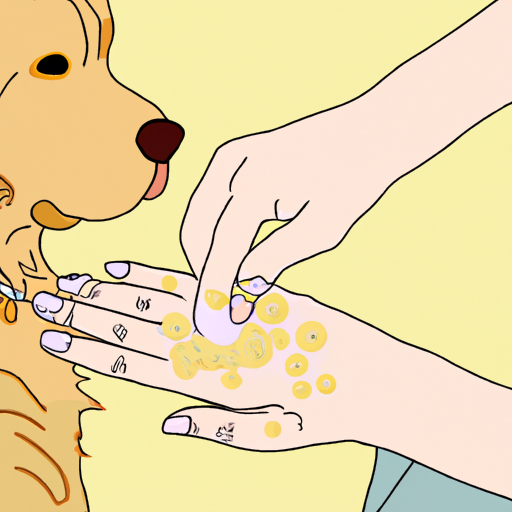Yeast infections in dogs can be a nuisance, causing your furry friend discomfort and you endless worry. But don’t fret! Here’s a comprehensive guide to help you understand, identify, and treat yeast infections on your dog’s skin.
Understanding Yeast Infections in Dogs
Yeast is a type of fungus that is commonly found on a dog’s skin and ears. They usually don’t cause problems, but sometimes the yeast multiplies uncontrollably, leading to a condition known as yeast dermatitis.
Symptoms of yeast dermatitis include:
- Itching and redness
- Sores and skin irritation
- Thickening of the skin
- Unpleasant smell
Identifying Yeast Infections in Dogs
Before you start any treatment, it’s crucial to confirm that your dog indeed has a yeast infection. A vet can perform a cytology test to check for yeast overgrowth. You can also look for telltale signs such as:
- Persistent scratching
- Red, inflamed skin
- Unusual odor
Treating Yeast Infections in Dogs
There are several ways to treat yeast infections in dogs. Some of the most common approaches include:
- Use of medicated shampoos
- Topical antifungal creams
- Oral antifungal medications
- Natural remedies such as apple cider vinegar and coconut oil
Here’s a simple table to guide you on how to use these treatments:
| Treatment Method | How to Use | Frequency |
|---|---|---|
| Medicated shampoo | Apply on wet fur, lather, leave on for 10 minutes, then rinse. | Twice a week |
| Antifungal cream | Apply on affected areas. | Daily |
| Oral medications | Follow vet’s instructions. | As prescribed |
| Natural remedies | Apply on affected areas or mix in food. | Daily |
Preventing Yeast Infections in Dogs
Prevention is always better than cure. Here are a few tips to prevent yeast infections in dogs:
- Regular grooming: Keep your dog’s skin clean and dry.
- Healthy diet: Feed your dog a balanced diet to support its immune system.
- Regular vet check-ups: Regular vet visits can help detect infections early.
When to Seek Veterinary Help
While yeast infections can often be treated at home, some cases require professional medical attention. If your dog’s symptoms aren’t improving or are getting worse, it’s time to consult a vet.
FAQ
Q: Can I use human antifungal cream on my dog?
A: It’s best to consult your vet before using human medications on your dog.
Q: How long does it take for a yeast infection in dogs to clear up?
A: With the right treatment, most yeast infections clear up within 1-2 weeks.
Q: Are some dogs more prone to yeast infections than others?
A: Yes, dogs with compromised immune systems, allergies, or certain breeds like French Bulldogs, are more prone to yeast infections.
Q: Can a yeast infection in dogs spread to humans?
A: No, yeast infections in dogs are not contagious to humans.
Remember, your dog depends on you for its health and happiness. So arm yourself with knowledge, and you’ll be well-equipped to keep your furry friend in the best of health.



